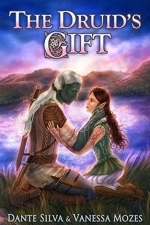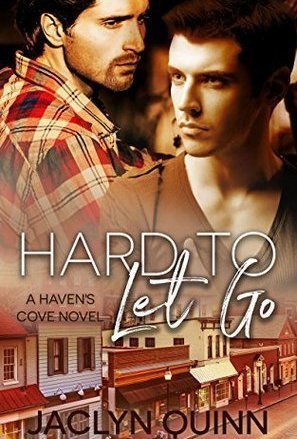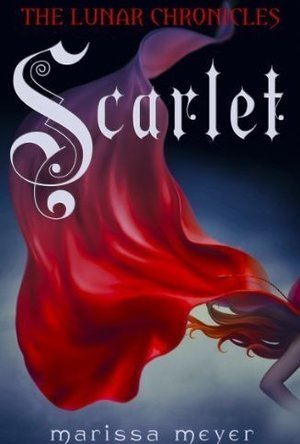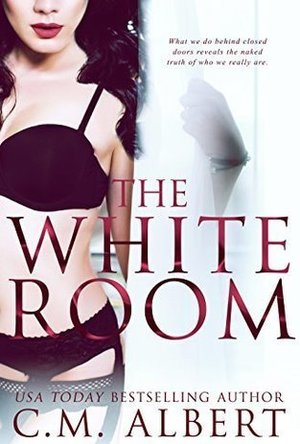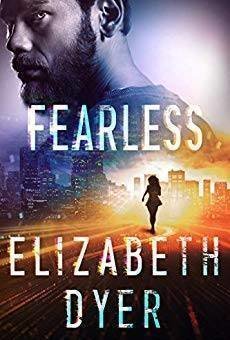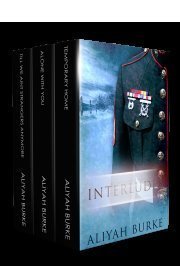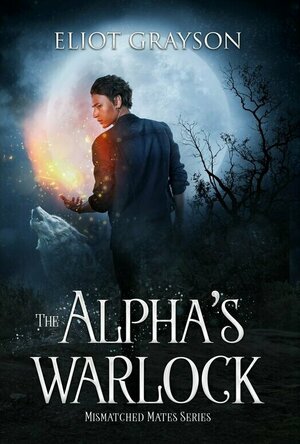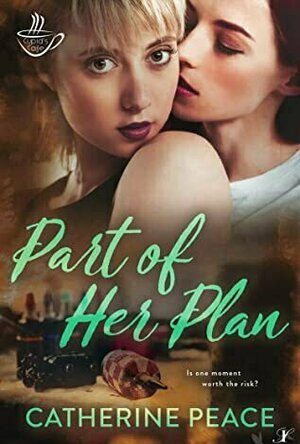Search
Debbiereadsbook (1647 KP) rated The Druid's Gift (The Nameless Gods #1) in Books
Jan 7, 2018
very well written high fantasy
Independent reviewer for Archaeolibrarian, I was gifted my copy of this book.
She was supposed to on a pilgrimage, being kidnapped for sacrifice was not in the plan!
I gotta be honest here, and you'll know when I gotta talk about my feelings about books, I'm nothing if not honest! When asked did I want to read this book, it came with a link, and of course I looked at it, and my first reaction was nope. That cover did nothing for me, but the blurb grabbed, so I said yes. NOW, I've read this book, and feel I should say this. That cover is right and proper for this book!! It fits Nune and Ty's story so perfectly! And it is a rather good book!
Nune is a day elf, a Druid, and Ty a night elf. They usually never cross paths. Nune is on a pilgrimage and Ty is on an initiation to move up the warrior ranks, I forget what the name he used is, sorry! Nune was supposed to be his sacrifice for this initiation, but after befriending each other, they question why Ty suddenly has to do this, when it's never been required of warriors before.
It is, quite simply, brilliantly written high fantasy. I really find myself engrossed in Nune and Ty, and their path towards finding out just what is going on in Ty's village, and why things are changing so rapidly, to the detriment of the day elves. It's told from both Nune and Ty's point of view. It does carry some difficult subjects, kidnap, elf sacrifice but these are dealt with very well.
Its not overly explicit, indeed, I thought it might actually come out clean, but Nune and Ty do get naughty on. Again, well written. Not overly graphic either, what's here is right for this book.
And there is a MUCH bigger picture that I'm still not seeing. Ty's brother is missing. There's the reason why the Nameless Gods are being summoned. And Ty still has to face his superiors about his failed quest when he gets home.
A step out of my comfort zone, but a very nice step. I hope I get to foloow Nune and Ty on their quest.
And an apology to the author for not spelling Nune with accent on the e, I don't know how to put that on!
4 solid stars
**same worded review will appear elsewhere**
She was supposed to on a pilgrimage, being kidnapped for sacrifice was not in the plan!
I gotta be honest here, and you'll know when I gotta talk about my feelings about books, I'm nothing if not honest! When asked did I want to read this book, it came with a link, and of course I looked at it, and my first reaction was nope. That cover did nothing for me, but the blurb grabbed, so I said yes. NOW, I've read this book, and feel I should say this. That cover is right and proper for this book!! It fits Nune and Ty's story so perfectly! And it is a rather good book!
Nune is a day elf, a Druid, and Ty a night elf. They usually never cross paths. Nune is on a pilgrimage and Ty is on an initiation to move up the warrior ranks, I forget what the name he used is, sorry! Nune was supposed to be his sacrifice for this initiation, but after befriending each other, they question why Ty suddenly has to do this, when it's never been required of warriors before.
It is, quite simply, brilliantly written high fantasy. I really find myself engrossed in Nune and Ty, and their path towards finding out just what is going on in Ty's village, and why things are changing so rapidly, to the detriment of the day elves. It's told from both Nune and Ty's point of view. It does carry some difficult subjects, kidnap, elf sacrifice but these are dealt with very well.
Its not overly explicit, indeed, I thought it might actually come out clean, but Nune and Ty do get naughty on. Again, well written. Not overly graphic either, what's here is right for this book.
And there is a MUCH bigger picture that I'm still not seeing. Ty's brother is missing. There's the reason why the Nameless Gods are being summoned. And Ty still has to face his superiors about his failed quest when he gets home.
A step out of my comfort zone, but a very nice step. I hope I get to foloow Nune and Ty on their quest.
And an apology to the author for not spelling Nune with accent on the e, I don't know how to put that on!
4 solid stars
**same worded review will appear elsewhere**
Debbiereadsbook (1647 KP) rated Hard To Let Go (Haven's Cove #1) in Books
Mar 6, 2018
Independent reviewer for Archaeolibrarian, I was gifted my copy of this book.
Jumping straight in, cos this is gonna be hard to write, so bare with me, okay??
Freaking LOVED this book! And if THIS class of writing is what a first time author can produce, I so very much want to be on the end of the next book!
Because, let me tell ya, there I was, merrily plodding along, reading away, thinking 4 stars, balancing across between 4 and 5, back to 4. Great book, extremely well written from both Owen and Brody's point of view.
Some sexy parts, some emotional parts, even a few funny ones, with Owen's female family members. A good book, just not quite hitting THAT spot yet, you know??
And then it hits, FULL in the face, just why Brody is back in town. I mean, I READ why he was there, I KNEW why he was there, but for some reason it didn't really sink in, you know?? Am I making sense?? Probably not, but I read the words, and then shit got real. And I was faced with a sledgehammer upside the head and I sobbed my bloody socks off. Because I've been there, where Brody was, that dark place, waiting, waiting. You know what's coming, there ain't nothing you can do to stop that freight train, but Lord you wish you could. Just one more day, one more hug. Just one MORE, you know? And its been 11 years, ELEVEN years since I had to sit through that and still, here I am, sobbing while writing this.
I've read two, very different, emotionally heavy books that connected to me on a very personal level. I had two very fluffy romance books before them, and stoopid me wrote the fluffy reviews before tackling these two heavier ones. So I've spent most of this afternoon in tears!
So, when you've read a book that you CANNOT fault, a book that grabs your heart, chews it up, and spits it out again, a book that does that to its characters too. A book that is FLAWLESS in its delivery, its flow. A book that lays out, very nicely, thank you very much, a view of the second book: a window into what's to come, and please Lord let me get the chance to read it, because Gabe and Nate have a story to tell that I really wanna read.
A book such as that can only get.....
5 full stars! Outstanding debut novel from Ms Quinn!
Jumping straight in, cos this is gonna be hard to write, so bare with me, okay??
Freaking LOVED this book! And if THIS class of writing is what a first time author can produce, I so very much want to be on the end of the next book!
Because, let me tell ya, there I was, merrily plodding along, reading away, thinking 4 stars, balancing across between 4 and 5, back to 4. Great book, extremely well written from both Owen and Brody's point of view.
Some sexy parts, some emotional parts, even a few funny ones, with Owen's female family members. A good book, just not quite hitting THAT spot yet, you know??
And then it hits, FULL in the face, just why Brody is back in town. I mean, I READ why he was there, I KNEW why he was there, but for some reason it didn't really sink in, you know?? Am I making sense?? Probably not, but I read the words, and then shit got real. And I was faced with a sledgehammer upside the head and I sobbed my bloody socks off. Because I've been there, where Brody was, that dark place, waiting, waiting. You know what's coming, there ain't nothing you can do to stop that freight train, but Lord you wish you could. Just one more day, one more hug. Just one MORE, you know? And its been 11 years, ELEVEN years since I had to sit through that and still, here I am, sobbing while writing this.
I've read two, very different, emotionally heavy books that connected to me on a very personal level. I had two very fluffy romance books before them, and stoopid me wrote the fluffy reviews before tackling these two heavier ones. So I've spent most of this afternoon in tears!
So, when you've read a book that you CANNOT fault, a book that grabs your heart, chews it up, and spits it out again, a book that does that to its characters too. A book that is FLAWLESS in its delivery, its flow. A book that lays out, very nicely, thank you very much, a view of the second book: a window into what's to come, and please Lord let me get the chance to read it, because Gabe and Nate have a story to tell that I really wanna read.
A book such as that can only get.....
5 full stars! Outstanding debut novel from Ms Quinn!
Dana (24 KP) rated Scarlet (The Lunar Chronicles, #2) in Books
Mar 23, 2018
Okay, so this book gets a 4.5 stars, but, again, I am rounding up for this book because it was honestly close enough to a 5 that I'm okay giving it a five star!!
Why did I wait so long to read this book?!?! Oh my goodness. I loved Cinder so much and I bought this book almost immediately after reading Cinder, so I'm not sure why I hesitated reading this because it was just as good!!
Kai and Cinder are still so cute together. I just love all of the little moments when they are thinking about each other and they are just consumed by those thought. Ugh. So freaking cute. (I'm still going for the the ship name of Kainder because they both need a little kindness in their lives, to be honest).
I love the new characters as well. Scarlet is so independent and feisty! I love how she sticks up for what she believes in and wants to protect those she loves, but she's also very trusting, maybe too trusting with people.
And Wolf, he's so smooth, but he's got anxiety. He wants to be a better person for Scarlet because she believes in him! Wolflet is an adorable ship name and I love them together.
And *CAPTAIN* Carswell is hilarious and I can't wait to see what shenanigans he gets into in the next year.
I'm just so in love with all of the new characters and I'm so glad they were added to the story! It's never certain that the characters introduced in the sequels will be as compelling as the characters in the first book, but they shined just as brightly. (Yeah, I know I'm getting cheesy, I just love these characters so freaking much.)
Normally I'm not the biggest fan of multiple PoV stories, this book was written so well that I actually loved it!!
I read this whole book in a day and it helped me out of a minor book slump, so thank you Scarlet!!
I absolutely love where the plot is going. I can't wait until I can get my hands on the rest of the series, which will hopefully be soon!
I just love these books and the author. I got to meet her a couple of years ago at yallwest and she signed this book. She's just so freaking nice and I'm so happy she's had so much success in this series! I can't wait to see what else she will be writing!
Why did I wait so long to read this book?!?! Oh my goodness. I loved Cinder so much and I bought this book almost immediately after reading Cinder, so I'm not sure why I hesitated reading this because it was just as good!!
Kai and Cinder are still so cute together. I just love all of the little moments when they are thinking about each other and they are just consumed by those thought. Ugh. So freaking cute. (I'm still going for the the ship name of Kainder because they both need a little kindness in their lives, to be honest).
I love the new characters as well. Scarlet is so independent and feisty! I love how she sticks up for what she believes in and wants to protect those she loves, but she's also very trusting, maybe too trusting with people.
And Wolf, he's so smooth, but he's got anxiety. He wants to be a better person for Scarlet because she believes in him! Wolflet is an adorable ship name and I love them together.
And *CAPTAIN* Carswell is hilarious and I can't wait to see what shenanigans he gets into in the next year.
I'm just so in love with all of the new characters and I'm so glad they were added to the story! It's never certain that the characters introduced in the sequels will be as compelling as the characters in the first book, but they shined just as brightly. (Yeah, I know I'm getting cheesy, I just love these characters so freaking much.)
Normally I'm not the biggest fan of multiple PoV stories, this book was written so well that I actually loved it!!
I read this whole book in a day and it helped me out of a minor book slump, so thank you Scarlet!!
I absolutely love where the plot is going. I can't wait until I can get my hands on the rest of the series, which will hopefully be soon!
I just love these books and the author. I got to meet her a couple of years ago at yallwest and she signed this book. She's just so freaking nice and I'm so happy she's had so much success in this series! I can't wait to see what else she will be writing!
Debbiereadsbook (1647 KP) rated The White Room in Books
Jul 21, 2018
hot hot HOT!!!
Independent reviewer for Archaeolibrarian, I was gifted my copy of this book.
Welcome to The White Room. 3 rules you need to know: you may only visit once every 6 weeks; you may not request a repeat with anyone, and what happens in the White Room, stays in the White Room. Or they WERE the rules. But circumstances changes, and so do the rules.
I really don't know what I was expecting from this book, really I didn't but I KNOW I wasn't expecting THIS!
I LOVED THIS BOOK!!!
It's basically wall to wall sex, and I makes no apologies for loving a book written as such. It lands itself firmly on 3 shelves: erotica; over 18, and fan yourself its a hot one! Cos ooooeeee is this a hot hot HOT one!
Dom is given a visit to the White Room as a birthday gift. Avaline uses the White Room when her husband becomes terminally ill. Lexie visits after her divorce. Asher visits to get his Mrs Robinson fantasy played out. Simon likes to get his desk signed underneath by those he had sex with on top. Austin wanted to be pampered but he couldn't leave his dominance at the door. Vironica is a widow, but still a woman. Arianna wasn't even supposed to KNOW about the White Room. Alec likes to play with his food. Callum can't be in a relationship, not with his job. Baron is a preacher, and a widower, but still a man. Adelaide had a 2 man fantasy.
And then we come full circle back to Dom and Avaline.
Each chapter is well told from a single point of view, the person whose chapter it is. Mostly male/female pairings but there are some FFM (contact between the females) and a MFM (NO contact between the males) pairings. There are repeat visits by most of these characters, is some way or other. We get each and every emotion about why they are using the White Room, and why they are so affected by this particular visit. And just why they are all so pleased with the changing rules.
I saw no spelling or editing errors, and each story flows well from one to the next, but pay attention, they use different names in the White Room! You should read all the stories in order.
I really REALLY loved it!
This is, as far as I can see, the first I've read of this author, I hope it isn't the last!
5 very sexy stars!
**same worded review will appear elsewhere**
Welcome to The White Room. 3 rules you need to know: you may only visit once every 6 weeks; you may not request a repeat with anyone, and what happens in the White Room, stays in the White Room. Or they WERE the rules. But circumstances changes, and so do the rules.
I really don't know what I was expecting from this book, really I didn't but I KNOW I wasn't expecting THIS!
I LOVED THIS BOOK!!!
It's basically wall to wall sex, and I makes no apologies for loving a book written as such. It lands itself firmly on 3 shelves: erotica; over 18, and fan yourself its a hot one! Cos ooooeeee is this a hot hot HOT one!
Dom is given a visit to the White Room as a birthday gift. Avaline uses the White Room when her husband becomes terminally ill. Lexie visits after her divorce. Asher visits to get his Mrs Robinson fantasy played out. Simon likes to get his desk signed underneath by those he had sex with on top. Austin wanted to be pampered but he couldn't leave his dominance at the door. Vironica is a widow, but still a woman. Arianna wasn't even supposed to KNOW about the White Room. Alec likes to play with his food. Callum can't be in a relationship, not with his job. Baron is a preacher, and a widower, but still a man. Adelaide had a 2 man fantasy.
And then we come full circle back to Dom and Avaline.
Each chapter is well told from a single point of view, the person whose chapter it is. Mostly male/female pairings but there are some FFM (contact between the females) and a MFM (NO contact between the males) pairings. There are repeat visits by most of these characters, is some way or other. We get each and every emotion about why they are using the White Room, and why they are so affected by this particular visit. And just why they are all so pleased with the changing rules.
I saw no spelling or editing errors, and each story flows well from one to the next, but pay attention, they use different names in the White Room! You should read all the stories in order.
I really REALLY loved it!
This is, as far as I can see, the first I've read of this author, I hope it isn't the last!
5 very sexy stars!
**same worded review will appear elsewhere**
Debbiereadsbook (1647 KP) rated Fearless (Somerton Security #3) in Books
Nov 16, 2018
far darker than the others, but equally brilliant!
Independent reviewer for Archaeolibrarian, I was gifted my copy of this book direct from the author, and I thank Ms Dyer for that!
This is book three in the Somerton Security series and I would strongly recommend that you read books one, Defenseless and book two, Relentless before you read this one. There is some of an on-going story arc, and I don't think you'll get the full benefit of THIS book, if you don't. And,I mean, both are five star reads too!
We haven't met Will or Cooper before, but we know of Will. He is Georgia's brother and we thought him long dead. Cooper is a sniper, and they have talked before, Will and Coop, long intimate conversations, but never got round to meeting. When Coop's life is threatened by her actions on orders, she needs Will to find the answers and clear her name. She just needs to free Will from his captivity.
I loved this one, too!
It's far darker than the other two, because some of Will's torture is described, in detail, as it happens and as memories surfacing, but it's needed. You NEED to know what happened to Will, while he was held all that time, because it has some baring on what happens later in the book. Quite graphic, but absolutely necessary.
Will and Coop's history is all phone calls and texts, but I loved that the full picture isn't immediately clear. You're left guessing at the clues and I love being kept on my toes.
I loved that Coop could SEE Will, you know, under all that dirt and grime and all those scars. She could see the man he was, will be again, even if Will couldn't. Loved that Will knew he had to let Coop go, if he was going to keep her and LOVED how he pulled her back!! I was like, way to go man!!
Parker and Georgia, and Ethan and Natalia all pop up, if only towards the end but it was nice that they did.
There is a character here who has piqued my interest, particularly after what he says to Coop and Will when the sh*t hits the fan, and more importantly, it was the WAY he said it. Makes me think that HIS story could be next, and he isn't quite the bad guy he portrays here. Maybe he is, but I think there is a teeny tiny soft spot in his heart for a certain doctor who is missing.
Please keep these coming!!
5 stars
**same worded review will appear elsewhere**
This is book three in the Somerton Security series and I would strongly recommend that you read books one, Defenseless and book two, Relentless before you read this one. There is some of an on-going story arc, and I don't think you'll get the full benefit of THIS book, if you don't. And,I mean, both are five star reads too!
We haven't met Will or Cooper before, but we know of Will. He is Georgia's brother and we thought him long dead. Cooper is a sniper, and they have talked before, Will and Coop, long intimate conversations, but never got round to meeting. When Coop's life is threatened by her actions on orders, she needs Will to find the answers and clear her name. She just needs to free Will from his captivity.
I loved this one, too!
It's far darker than the other two, because some of Will's torture is described, in detail, as it happens and as memories surfacing, but it's needed. You NEED to know what happened to Will, while he was held all that time, because it has some baring on what happens later in the book. Quite graphic, but absolutely necessary.
Will and Coop's history is all phone calls and texts, but I loved that the full picture isn't immediately clear. You're left guessing at the clues and I love being kept on my toes.
I loved that Coop could SEE Will, you know, under all that dirt and grime and all those scars. She could see the man he was, will be again, even if Will couldn't. Loved that Will knew he had to let Coop go, if he was going to keep her and LOVED how he pulled her back!! I was like, way to go man!!
Parker and Georgia, and Ethan and Natalia all pop up, if only towards the end but it was nice that they did.
There is a character here who has piqued my interest, particularly after what he says to Coop and Will when the sh*t hits the fan, and more importantly, it was the WAY he said it. Makes me think that HIS story could be next, and he isn't quite the bad guy he portrays here. Maybe he is, but I think there is a teeny tiny soft spot in his heart for a certain doctor who is missing.
Please keep these coming!!
5 stars
**same worded review will appear elsewhere**
Debbiereadsbook (1647 KP) rated Interludes Box Set in Books
Aug 14, 2019
I LOVED THESE!
Independent reviewer for Archaeolibrarian, I was gifted my copy of this box set of three books.
Because I read these books back to back, as a set, I’m writing one review for the whole bundle, rather than three separate reviews.
And let me tell ya, I loved these books!
Well, I LOVED books one and three, two didn’t quite hit that spot, but still!
These books landed right in my queue when I needed them the most. I read a lot, A LOT, a lot and a huge chunk of those books are male/male romance of some description or other. Now, I’m not picky, I like to think I’m an equal opportunities reader, I will read most pairings so long as the blurb grabs. But it’s been a while since I had such great male/female pairings that were so bloody sexy!
There is instant and powerful attraction between Roxi and Sam in book one. Tuck and Ariel pussy foot around each other for the better part of two years before they act on their feelings in book two. Maya and Brent, in book three, had a one night stand some time (but I was never really clear on how long ago that was!) in Hawaii and when Brent finds himself face to face with Maya again, he wants to pick up where they left off.
Each book is well written, with both male and female lead having a say. All the characters have very different voices, and tell their stories in the third person. Each book has a Marine or two as the lead, and there are a whole host of other Marines that pop up in each book.
There is a huge supporting cast, spread over the three books, with some very interesting people who I want to have a story of their own. Some massive hints? Clues? Teasers, I think is probably the best word, to their stories and I need to know will there be more in this series??
I read tow of these books in one day, and had I not had to up at stoopid o’clock the next morning, I would probably have read all three! First I’ve read of this author, and now I want to read more. Her back list is massive though, and it may take some time to choose!
Like I said, book two did not quite hit *that* spot, but I’m still giving the whole set. . .
5 full stars
**same worded review will appear elsewhere**
Because I read these books back to back, as a set, I’m writing one review for the whole bundle, rather than three separate reviews.
And let me tell ya, I loved these books!
Well, I LOVED books one and three, two didn’t quite hit that spot, but still!
These books landed right in my queue when I needed them the most. I read a lot, A LOT, a lot and a huge chunk of those books are male/male romance of some description or other. Now, I’m not picky, I like to think I’m an equal opportunities reader, I will read most pairings so long as the blurb grabs. But it’s been a while since I had such great male/female pairings that were so bloody sexy!
There is instant and powerful attraction between Roxi and Sam in book one. Tuck and Ariel pussy foot around each other for the better part of two years before they act on their feelings in book two. Maya and Brent, in book three, had a one night stand some time (but I was never really clear on how long ago that was!) in Hawaii and when Brent finds himself face to face with Maya again, he wants to pick up where they left off.
Each book is well written, with both male and female lead having a say. All the characters have very different voices, and tell their stories in the third person. Each book has a Marine or two as the lead, and there are a whole host of other Marines that pop up in each book.
There is a huge supporting cast, spread over the three books, with some very interesting people who I want to have a story of their own. Some massive hints? Clues? Teasers, I think is probably the best word, to their stories and I need to know will there be more in this series??
I read tow of these books in one day, and had I not had to up at stoopid o’clock the next morning, I would probably have read all three! First I’ve read of this author, and now I want to read more. Her back list is massive though, and it may take some time to choose!
Like I said, book two did not quite hit *that* spot, but I’m still giving the whole set. . .
5 full stars
**same worded review will appear elsewhere**
Debbiereadsbook (1647 KP) rated The Alpha's Warlock (Mismatched Mates #1) in Books
Mar 27, 2020
great read, but I NEEDED Ian!
Independent reviewer for Gay Romance Reviews, I was gifted my copy of this book.
Nate is a warlock, and getting kidnapped and cursed by the Shimball werewolf pack wasn't in his plans for the day. When he manages to drag himself to tell the Armitage pack of the Shimball pack plans, mating the Alpha's brother wasn't in his plans either. But the only way to break the curse is to build a mate bond with an Alpha, so mate with Ian he does. There is just the minor detail that Ian hates Nate, and Nate has been attracted to Ian for such a long time. When the Shimball pack come for the Armitage pack, Ian has to keep Nate safe, even if it just gives him a chance to kill Nate himself!
I really REALLY enjoyed this!
Nate is quirky, and witty, and so bloody funny! Because the book is only told from his point of view, and in the first person, we get all of his wit and humour, but also, all of his terror at what his father did to him. His pain at realizing he might not be good enough for anyone. His reaction to the bond to Ian surprised him, and we get all of that. We get his dawning knowledge of what Ian has become to him.
The story moves along at pace in places, a little slower in others. The bigger picture, I think, isn't clear yet, and I have no idea what that picture might be, but I look forward to reading more.
The only thing, for ME, why I didn't give it 5 stars when I enjoyed it so much?
Single person person of view. Only Nate has a voice. I really REALLY needed Ian, at key points along the way, and I don't get him. I needed to know what he felt about having to mate Nate, although there were clues to that early on. I needed to know if the mate bond affected him as much as it did Nate. I needed to know just what his brother's betrayal means to him, and how much it hurts him. And I don't get him!
BUT!
A great read, and the first I've read of this author. I like the way they spin the tales. I look forward to reading more, especially after the epilogue here!
4 solid stars
**same worded review will appear elsewhere**
Nate is a warlock, and getting kidnapped and cursed by the Shimball werewolf pack wasn't in his plans for the day. When he manages to drag himself to tell the Armitage pack of the Shimball pack plans, mating the Alpha's brother wasn't in his plans either. But the only way to break the curse is to build a mate bond with an Alpha, so mate with Ian he does. There is just the minor detail that Ian hates Nate, and Nate has been attracted to Ian for such a long time. When the Shimball pack come for the Armitage pack, Ian has to keep Nate safe, even if it just gives him a chance to kill Nate himself!
I really REALLY enjoyed this!
Nate is quirky, and witty, and so bloody funny! Because the book is only told from his point of view, and in the first person, we get all of his wit and humour, but also, all of his terror at what his father did to him. His pain at realizing he might not be good enough for anyone. His reaction to the bond to Ian surprised him, and we get all of that. We get his dawning knowledge of what Ian has become to him.
The story moves along at pace in places, a little slower in others. The bigger picture, I think, isn't clear yet, and I have no idea what that picture might be, but I look forward to reading more.
The only thing, for ME, why I didn't give it 5 stars when I enjoyed it so much?
Single person person of view. Only Nate has a voice. I really REALLY needed Ian, at key points along the way, and I don't get him. I needed to know what he felt about having to mate Nate, although there were clues to that early on. I needed to know if the mate bond affected him as much as it did Nate. I needed to know just what his brother's betrayal means to him, and how much it hurts him. And I don't get him!
BUT!
A great read, and the first I've read of this author. I like the way they spin the tales. I look forward to reading more, especially after the epilogue here!
4 solid stars
**same worded review will appear elsewhere**

Mathematics Explained for Primary Teachers
Derek Haylock and Ralph Manning
Book
Get access to an interactive eBook* when you buy the paperback! (Print paperback version only, ISBN...
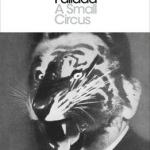
A Small Circus
Book
A Small Circus is a powerful 1931 portrayal of a German town on the brink of chaos, from bestselling...
Debbiereadsbook (1647 KP) rated Part of Her Plan (Cupid's Cafe #5) in Books
Jul 21, 2021
not an easy read, but a bloody good one!
Independent reviewer for Archaeolibrarian, I was gifted my copy of this book.
I have no idea what I expected from this book, but it certainly wasn't this!
Jenny and Lydia have real life problems. Both are recovering from their respective addictions (or not, as the case may be) and this book focuses on that, more than the romance, and I really LOVED that. All too often these topics get brushed under the carpet and here, they are front and centre.
Lydia has a plan, to get her own apartment, and then be on her own. Meeting with Jenny again should not waver her from her plan. She's doing well, and is committed to get to the end. Jenny, on the other hand, isn't doing so well and the place in the sober living house SHOULD be her ticket to get to be with her brother again. But Jenny's recovery isn't going to plan, and one single mistake might ruin them both.
At one point, I wasn't sure I wanted to read this book. I started it, and it took a downward turn (I thought) and I contemplated leaving it. But something made me carry on and I am so bloody glad I did!
Yes, it's not an easy read. it certainly isn't a fluffy romance that you can breeze through, but it IS a bloody good book! It shows the struggles, the real life struggles that people face. How people spiral downwards, how they hit the bottom and try to get back up. How the deal with their addiction (in this case drugs and alcohol) and what they do when faced with what might possibly be their last chance.
Jenny and Lydia are not perfect, but they are perfect for each other, and other than the issues with their addictions, the romance side of things moves along slow, at first, but then speeds up, and slows down again. I loved that it wasn't explicit. There is steam and passion a-plenty, but the detailed sex scenes are not here, and I truly think had they been, I would not have liked this book as much!
I've not read anything by this author before, nor any of the previous books in this series, I don't think you need to, to enjoy this one. I might go back and read them!
But please, be aware of the subject matter: drug abuse and alcohol abuse mostly. Some people might not be able to read this because of triggers.
4 stars
**same worded review will appear elsewhere**
I have no idea what I expected from this book, but it certainly wasn't this!
Jenny and Lydia have real life problems. Both are recovering from their respective addictions (or not, as the case may be) and this book focuses on that, more than the romance, and I really LOVED that. All too often these topics get brushed under the carpet and here, they are front and centre.
Lydia has a plan, to get her own apartment, and then be on her own. Meeting with Jenny again should not waver her from her plan. She's doing well, and is committed to get to the end. Jenny, on the other hand, isn't doing so well and the place in the sober living house SHOULD be her ticket to get to be with her brother again. But Jenny's recovery isn't going to plan, and one single mistake might ruin them both.
At one point, I wasn't sure I wanted to read this book. I started it, and it took a downward turn (I thought) and I contemplated leaving it. But something made me carry on and I am so bloody glad I did!
Yes, it's not an easy read. it certainly isn't a fluffy romance that you can breeze through, but it IS a bloody good book! It shows the struggles, the real life struggles that people face. How people spiral downwards, how they hit the bottom and try to get back up. How the deal with their addiction (in this case drugs and alcohol) and what they do when faced with what might possibly be their last chance.
Jenny and Lydia are not perfect, but they are perfect for each other, and other than the issues with their addictions, the romance side of things moves along slow, at first, but then speeds up, and slows down again. I loved that it wasn't explicit. There is steam and passion a-plenty, but the detailed sex scenes are not here, and I truly think had they been, I would not have liked this book as much!
I've not read anything by this author before, nor any of the previous books in this series, I don't think you need to, to enjoy this one. I might go back and read them!
But please, be aware of the subject matter: drug abuse and alcohol abuse mostly. Some people might not be able to read this because of triggers.
4 stars
**same worded review will appear elsewhere**
